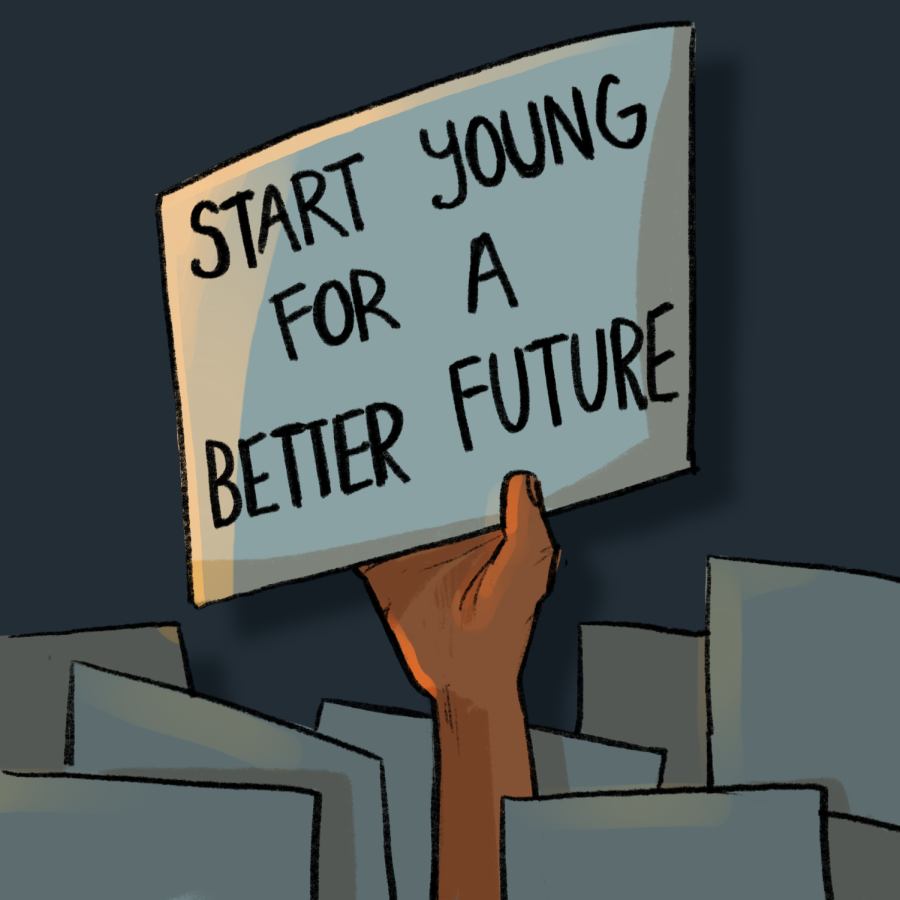Are You with It?
May 25, 2023
How big is your world? Does your consciousness reach past the Welcome to Issaquah sign? Recently, upon preparing for my AP Lang exam, I was advised to stay up to date on current events, for the purpose of using them as evidence in essays. I fruitlessly sought a routine of checking contemporary news sites and imprinting the thoughts of journalists on my opinions, but my lack of attention span disallowed this pursuit. I altered my approach, consuming the little tragedies in the world audibly by filling my car with Michael Barbaro and Sabrina Tavernise’s voices on my commute to school. The Daily is a podcast by the New York Times that provides a 20-minute morning briefing on forefront events, ready by six A.M. As the days went on and I garnered tidbits of information on the Writer’s Guild of America strike, abortion in the supreme court, and candidacy wariness, I felt my perspective broaden. For better or worse, I was less stressed about whether I would receive a five on the AP Lang exam, and more frantic about tumult in Tennessee. Educaters 4SC says, “It is very easy to get caught up in our own lives and problems, and learning about current events can both ground and remind students of the world that exists beyond their communities.”
Regardless of your involvement, everyone has issues on their hearts and minds. Freshman Cate Kovats says, “I have not really been paying attention to what is going on, but I know there have been a lot of shootings around the world and around the country,” and junior Oliver Cash shares that he keeps up with “the war in Ukraine, different movements in the U.S., social developments, what is happening in Sudan, workers’ rights, and labor laws.” Streamlining what you want to remain updated on is a great way to make the practice more habitual. The Daily Orange recommends, “When you have extra time, you can go into [news apps] and read the breaking news articles, an international story that didn’t make headlines or take a deep dive into articles about your niche interest.” In addition to news apps, social media can be an accessible source of information. Cash says, “I follow news accounts on social media. There are a lot of war development-based accounts like Ground News, that takes bias from different news articles and compares them.” Awareness of how the world is evolving can be a catalyst for thought, which fosters further understanding and a greater participation in an ever-changing sphere. Senior Hannah Gaffney says, “It makes me feel more prepared to actually talk about things; if I am talking about a topic, I want to be informed so that if I have an opinion, I can vehemently defend it and not be backed against a wall.”
The future is being hurled at us in a violent pace; every day shocking news is paraded around sources like bait — scandalization unnecessary — the truth barbarian enough. When Gen Z caught wind of the destructive Willow Project, a petition circulated rapidly to halt its steamrolling towards the White House. When the banning books movement gained traction in Florida, students were given voices in the Current Events Conversation column of the New York Times, granted the platform to speak their minds about issues directly affecting them. When Taylor and Joe broke up, within minutes, millions of Twitter-enabled teens produced over-analyzations. Only this generation is capable of such reverberating impact, and it begins with staying informed. Sophomore Jieden Fenderson says, “As I have grown up, I have come to see the world as more of a mess, but I think people often exaggerate, because the world has always been a mess. The future getting worse is already set; [irreversible] climate change is here. But at the same time, we have strong leaders in our generation.” Fenderson is the president of IHS’ Junior State of America club, which purposefully engages students in politics and holds debates. I sat in on a JSA meeting on a sun-drenched Thursday. A debate on the validity of Crumbl Cookies (rooted in traditionalism versus modernity) heated up in tandem with the temperature outside. Gavels flying, “order in the court” being shouted ironically, and a room full of passionate people (including supervisor Kelsey Early, weighing in with her utmost praise for the decadent dessert phenomenon) made for a unique environment of explosive growth in perspective, even if the perspective gained is about the inequalities within an institution of frosting and flour. Forbes advises, “Get a sense of how people are reacting to current events and the news. Understand what people are thinking and their perceptions. Engage in discussions with a diverse set of people about current events,” and JSA is an in-house, accessible way to reach this state of communication and common ground.
What comes to mind when the question is posed: what do you care about? Does the reality of gun violence make you think about the trust you put in school safety and regulation of weapons? Did you spend the winter noting how mountains faced closures due to abysmal conditions brought on by climate change? Or perhaps Saturday Night Live is your weekend comfort ritual, noticed that has disappeared due to the crisis of underpaid writers? These events may seem encroaching on our lives now, but we are determining their longevity through our actions, and it is imperative to stay informed.



